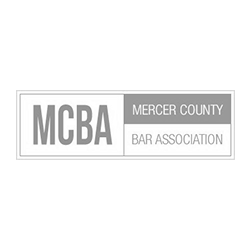Disability Discrimination
The New Jersey Law Against Discrimination (LAD) makes it unlawful for an employer to terminate or make an employment decision about a qualified individual on the basis of the person’s disability. A disability attorney like those at the Princeton law office of Mason, Griffin & Pierson, P.C. can help you establish your claim. To do so, we must prove by a preponderance of the evidence that your disability was a motivating/determinative factor in your employer’s decision. You need not prove it was the sole or exclusive motivation for the adverse decision. Nor are you required to prove direct evidence of unlawful motive. Discrimination, if it exists, is seldom admitted by the employer. You may infer discrimination based on the existence of other facts. Generally, proof of disability discrimination requires that you establish an initial case of discrimination or what in legal terminology is called a prima facie case of discrimination. This requires that you prove, by the preponderance of the evidence, the following facts:
- You have a disability
- You held a position for which you were objectively qualified
- Your employment was terminated or you otherwise suffered an adverse employment decision
- Your employer sought to or did fill the position with a similarly-qualified but non-disabled person
Once you have proven a prima facie case of discrimination, the employer must articulate a legitimate, non-discriminatory reason for its decision against you. Typically, the employer will claim that you failed to perform your job, or that the action against you was part of a legitimate reduction in force. In articulating its reason, the employer is required to present some proof that supports a legitimate non-discriminatory reason for its action.
Once the employer has set forth a legitimate, non-discriminatory reason, you next have the burden of proving, by a preponderance of the evidence, that your employer’s proffered reason is merely a pretext or cover-up to discriminate against you based upon your disability. This may be accomplished by showing that (1) a discriminatory reason more likely than not motivated the employer’s action, or (2) your employer’s proffered explanation is unworthy of belief and that a motivating/determinative reason for the adverse employment decision was your disability.
To discredit your employer’s explanation, you cannot simply show that its decision was wrong, because the factual dispute at issue is not whether your employer made the right decision or a fair decision. Rather, you must demonstrate such weaknesses, implausibilities, or contradictions in your employer’s explanation for its actions that a jury would find it to be unworthy of belief or that, even if a true reason, it was not the only true reason and that your disability was a motivating/determinative factor in the decision to terminate you.
Failure to Accommodate
An experienced disability discrimination attorney can assist you in filing a claim. To prevail on this claim, you must prove four things:
- You have a “disability” within the meaning of the ADA
- You are a “qualified individual” able to perform the essential functions of your job
- Your employer was informed of your need for an accommodation due to a disability. Note that there is no requirement that a request be made for a particular or specific accommodation; it is enough to satisfy this element that the employer is informed of your basic need for an accommodation
- Your employer failed to provide the accommodations requested by you or any other reasonable accommodation
Under the ADA, a reasonable accommodation may include, but is not limited to, the following:
- Job restructuring
- Part-time or modified work schedule
- Reassignment to a vacant position for which you are qualified
- Provision of qualified readers or interpreters
- Other similar accommodations
However, a “reasonable accommodation” does not require the employer to do any of the following:
- Change or eliminate any essential function of employment
- Shift any essential function of employment to other employees
- Create a new position for you
- Promote you
- Reduce productivity standards
Disability Discrimination Lawyers
At the Princeton law office of Mason, Griffin & Pierson, P.C. our disability discrimination attorneys can guide you through each aspect of your claim, answering your questions and explaining the ADA’s process. For example, the intent of the ADA is that the employer and the employee should engage in an interactive process to determine whether there is a reasonable accommodation that would allow the employee to perform the essential functions of a job. Both the employer and the employee must cooperate in this interactive process in good faith, once the employer has been informed of the employee’s request for a reasonable accommodation. Under the ADA, the term “disability” means a “physical or mental impairment” that “substantially limits” a “major life activity.”
“Physical/Mental Impairment” — The term “physical impairment” means any condition that prevents the body from functioning normally. The term “mental impairment” means any condition that prevents the mind from functioning normally.
“Major Life Activities” — Under the ADA, the term “disability” applies to a physical or mental impairment that substantially limits a major life activity. Major life activities are activities that are of central importance to everyday life. Major life activities include the operation of major bodily functions.
“Substantially Limiting” — Only impairments with a permanent or long-term impact are disabilities under the ADA. Temporary injuries and short-term impairments are not disabilities. The name of the impairment or condition is not determinative. What matters is the specific effect of an impairment or condition on your life. The definition of “disability” is to be construed in favor of broad coverage of individuals.
Once you establish that you have a disability as defined under the ADA, you must then prove that you are a “qualified individual.” This means that you must show that you have the skill, experience, education and other requirements for the job and could do the job’s “essential functions,” either with or without reasonable accommodation. This does not mean you must prove you can perform all the functions of your job, only the “essential functions.” If you cannot establish you are qualified to perform the essential functions of your job even with a reasonable accommodation then you are not a qualified individual under the ADA. The ADA does not require an employer to hire or retain an individual who cannot perform the job with or without an accommodation. Your disability could be temporary, such as pregnancy. If you are pregnant and your employer refuses to provide reasonable accommodations while you are on the job, our pregnancy discrimination lawyers can help.
Improper Disclosure of AIDS Information
Under the New Jersey AIDS Assistance Act (NJAAA), all diagnosed cases of AIDS and HIV infection must be reported to the Department of Health along with identifying information about the person diagnosed. However, in conjunction with this reporting requirement, the law provides that any record containing identifying information about a person who has or is suspected of having AIDS or HIV infection must be kept confidential and can be disclosed only for specific authorized purposes, or with a person’s informed consent. The NJAAA provides that a person whose HIV or AIDS information has been improperly disclosed may bring a civil action against the individual or institution who violated the Act to obtain appropriate relief, including actual damages, equitable relief and reasonable attorney’s fees and court costs. If informed consent is not obtained, the content of a record containing identifying information about a person with HIV infection may only be disclosed under one of six conditions: (1) to qualified personnel for the purpose of conducting scientific research; (2) to qualified personnel for the purpose of conducting audits or evaluations; (3) to qualified personnel involved in medical education, diagnosis or treatment of the person who is the subject of the record; (4) to the Department of Health as required by law; (5) as permitted by rules and regulations adopted by the Commissioner of Health for the purposes of disease prevention and control; and (6) in all other instances authorized by law.




 On January 1, 2024, reporting requirements under the
On January 1, 2024, reporting requirements under the  Congratulations to Sharon A. Dragan for receiving the Michael A. Pane Ethics In Government Award. The award was presented by the NJILGA at the New Jersey State League of Municipalities November convention. The Michael A. Pane Ethics In Government Award honors a municipal professional who exemplifies the highest standards of ethics and whose work has significantly enhanced the integrity of local government. November 2023
The Michael Pane Award, established by the Pane Family and the New Jersey State League of Municipalities, is given in honor of Michael A. Pane, Sr., who was the long-time editor of the Municipal Law Review, president and trustee of the New Jersey Institute of Municipal Attorneys, counsel to the New Jersey Association of Municipal Clerks, counsel to the League of Municipalities and author of the New Jersey Practice Series, Local Government Law volumes.
Congratulations to Sharon A. Dragan for receiving the Michael A. Pane Ethics In Government Award. The award was presented by the NJILGA at the New Jersey State League of Municipalities November convention. The Michael A. Pane Ethics In Government Award honors a municipal professional who exemplifies the highest standards of ethics and whose work has significantly enhanced the integrity of local government. November 2023
The Michael Pane Award, established by the Pane Family and the New Jersey State League of Municipalities, is given in honor of Michael A. Pane, Sr., who was the long-time editor of the Municipal Law Review, president and trustee of the New Jersey Institute of Municipal Attorneys, counsel to the New Jersey Association of Municipal Clerks, counsel to the League of Municipalities and author of the New Jersey Practice Series, Local Government Law volumes.
 The Supreme Court of New Jersey appointed Elizabeth Zuckerman to serve on the District Ethics Committee for District VII (DEC VII) for a three-year term. The district includes Mercer County. August 23, 2023
The Supreme Court of New Jersey appointed Elizabeth Zuckerman to serve on the District Ethics Committee for District VII (DEC VII) for a three-year term. The district includes Mercer County. August 23, 2023
 We are pleased to announce the election of Paul M. Bishop to the Board of Directors, Mason, Griffin & Pierson, PC. Paul, one of the firm’s senior litigators, practices business, commercial, and general litigation, and represents clients in complex disputes throughout New Jersey’s state and federal courts. July 2023
We are pleased to announce the election of Paul M. Bishop to the Board of Directors, Mason, Griffin & Pierson, PC. Paul, one of the firm’s senior litigators, practices business, commercial, and general litigation, and represents clients in complex disputes throughout New Jersey’s state and federal courts. July 2023






